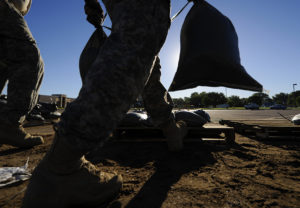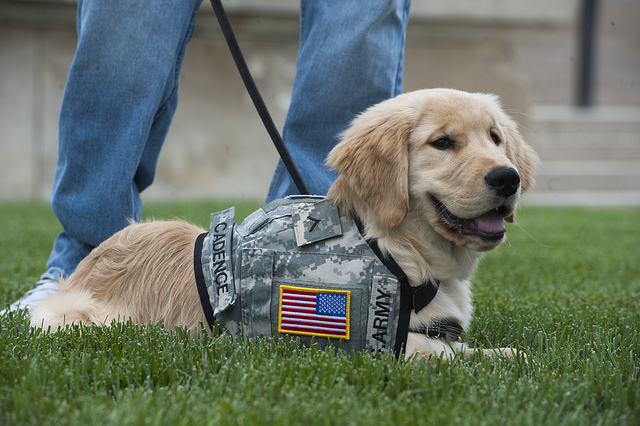Post-traumatic stress disorder is a condition that affects a multitude of military veterans. Many of those same veterans are assigned service dogs to help calm their anxieties and avoid panic attacks.
Logically, this should mean that clinics that treat PTSD would allow said service dogs inside their doors. Right?
In a perfect world, maybe. At the VA’s American Lake facility near Seattle, no.
Former Army Spc. Kermit Scott was waiting to be admitted in a special PTSD treatment program at American Lake, but a few days before his session began he was told to leave his service dog, Cooper, at home.
Scott, a combat veteran from both Iraq and Afghanistan, was shocked and dismayed. He told the MarineCorpsTimes that he openly wept at the news.
“It was devastating,” Scott said. “Cooper helps with my stability; he can tell when I’m having tremors and need assistance. He opens up doors, turns on the lights, gets my shoes.”
It is indeed VA policy to allow service dogs into almost every part of its facilities, but it is not required to allow dogs into every in-patient program VA clinics offer. In some programs, dogs are only allowed to accompany a veteran if they are part of a rigid health plan. The American Lake program, unfortunately, was one of the few that disallows service dogs.
“Standard operating procedures for accepting a service animal into the treatment program were not in place due to the myriad accommodations that needed to be addressed,” the clinic said.
Following the substantial backlash, American Lake is seeking to change its policy. Meanwhile, Scott and Cooper will start treatment at another facility in Boise, Idaho.




































